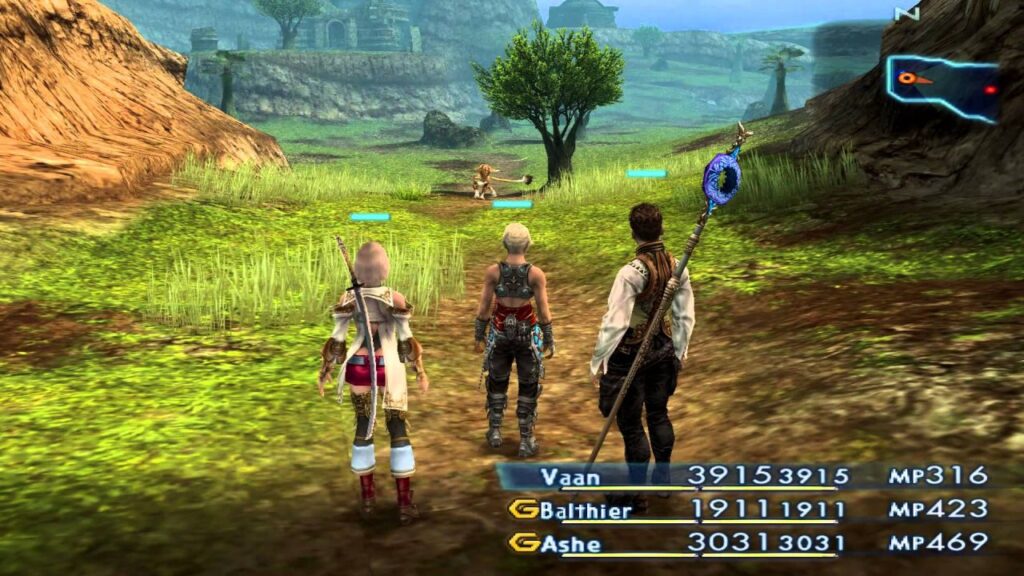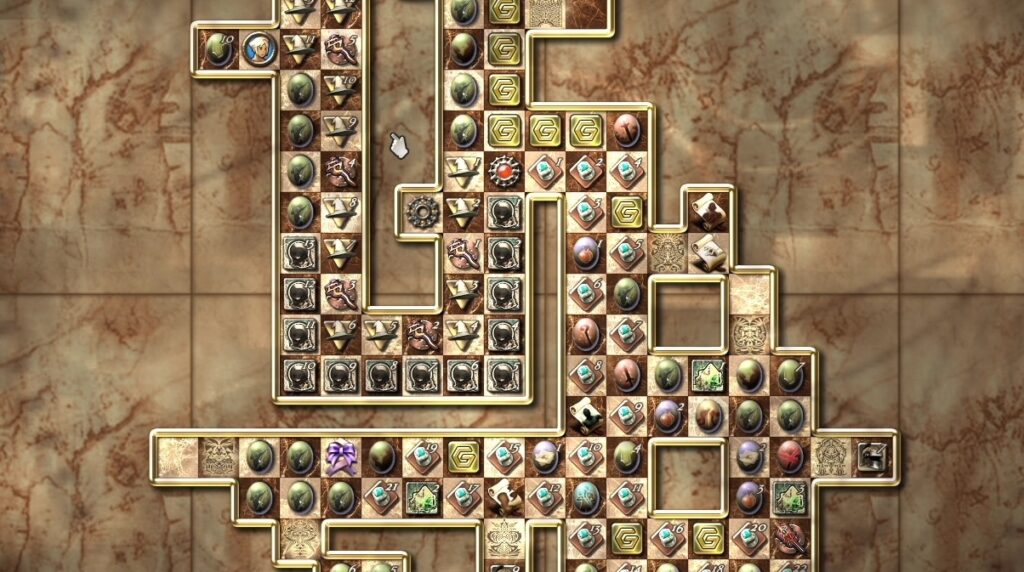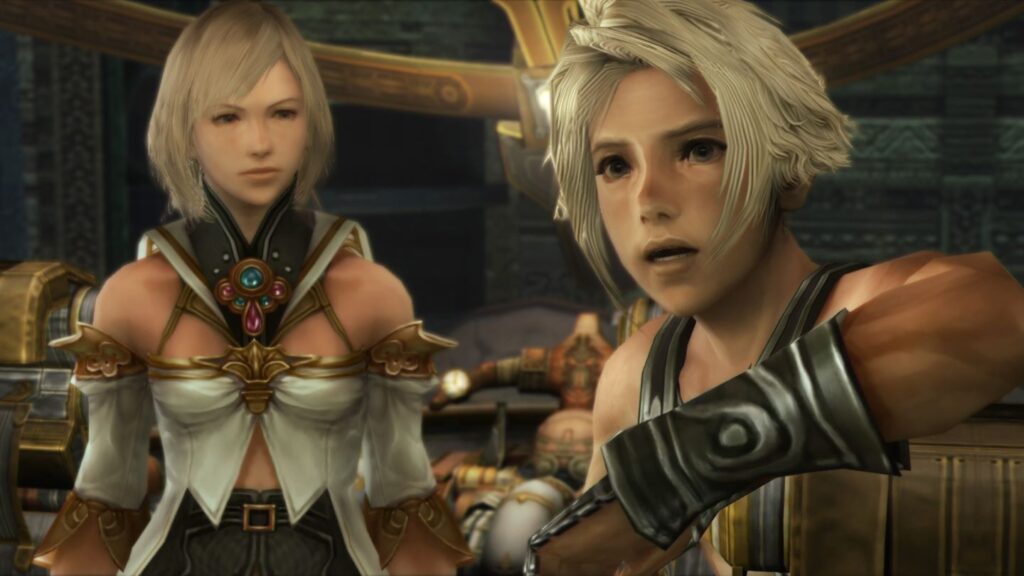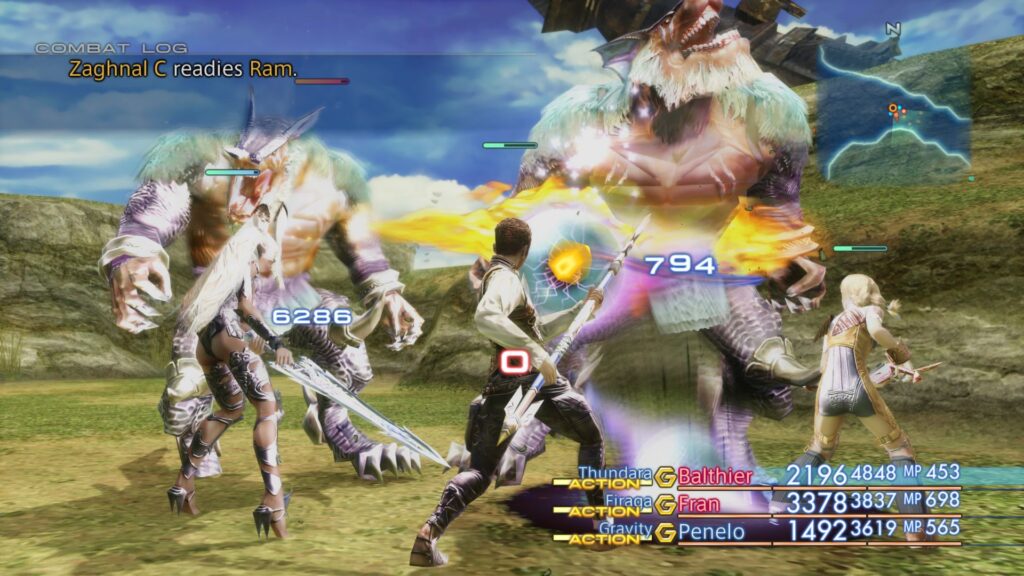Final Fantasy is an incredible franchise. Its games became the foundation of the RPG genre for many generations and, even today, they are highlights of technological advancement and experiments within this broad and inventive genre. Final Fantasy, in fact, may have succeeded exactly because Squaresoft was one of the few developers who really understood that the RPG genre could be much more than simply sword & magic with turn-based combat back in the 90’s.
When Final Fantasy VI was released, the genre was brought upside-down. That game had urgency with its ATB system with visual cues, it had a deep degree of exploration, it offered a multitude of layers for story development, it mixed puzzles, fights, storytelling, and open-world aspects unlike any before it. Everything it did, it was done better when Final Fantasy VII released a few years later, throwing the franchise into a new frontier with its new graphical elements, FMVs, and colossal scope.
Almost every game in the franchise since then had done something to stir up the genre, for good or bad. As games though, they have always succeeded in being fun, lasting, and technical marvels within their platforms of release. Final Fantasy IX took the original Playstation to its limits, Final Fantasy X had voice-acting and stunning graphics, Final Fantasy XIII streamlined the experience, Final Fantasy XI and XIV took it to the masses, and Final Fantasy XV left us in awe with its beautiful world.

My personal experience with Final Fantasy has always been a positive one. There is no game in the franchise which I could say is “bad”, in fact, most of them are part of my most cherished memories while playing video games. That, however, is not to say I have zero issues with them. On the very contrary, my close relationship with this franchise, this love I have for these games and the reinvention they bring with each new chapter is also filled with annoyances and problems.
I could say most of these issues are superficial, but there are some who have lingered throughout the years. Two games, in particular, have melded their existences with specific years of my life, forging what I could call a love-and-hate relationship. It is about one of them I will talk now:
Final Fantasy XII
Back in 2006, I was moving out of my experimentation with MMOs in general, I had my fill of Ragnarok Online and Lineage 2, tried for a few months the growing World of Warcraft, but ultimately decided those games were only wasting my time. I realized I could play five or more deep, intricate RPGs with the time I was spending just farming levels or new gear. I was tired of random drop rates and of those punishing game strategies to make you play for dozens of hours just for a singular piece of equipment or material to drop. Yeah, it took about five years, but it finally became annoying to me.
Final Fantasy XII then swoops in the Playstation 2, a technical marvel pushing the most successful console in existence to its absolute limits. Vaan and his group had a game that was so big and powerful it would be amazing even if it was released a few years later for the upcoming Playstation 3 instead. I had problems with it though, dozens of problems.
The original Final Fantasy XII was built exactly upon the remains of the MMORPGs of the previous years, perhaps a legacy from the ongoing Final Fantasy XI, which took the franchise into the online realm and helped Square Enix come back from the financial catastrophe that was Final Fantasy: Spirits Within. It had the structure, the feeling, the atmosphere, even the gameplay of a MMO, yet you would play it off-line. At the time I would refer to it as a Massive Multiplayer Off-line RPG.
These aspects of MMORPG were highlighted by pathetic drop rates of items, a randomization of monsters and treasures that required moving in and out of screens, the slow-walking through big empty maps, the combat that felt like a console-version of Lineage 2. Hell, it had everything that I was NOT looking for. So it became my object of hatred and disgust, or it least it would if not for its strengths.
The Gambit System
As I played through Vaan’s quest, the game’s references to MMOs of the time seemed to clash with a new and interesting element: the gambits. As a student of Computer Science, that system of priority, “ifs” and “elses”, “dos” and “don’ts” really got my attention. I could tweak them in interesting ways, making an automatically-controlled party of destroyers. That system, combined with the traditional equipment list, weapons, and spells, conquered my attention and made me mostly ignore the abismal drop rates and the time wasted by walking through large empty maps.

However…
As the gambits seduced me to enjoy the game, another aspect stood out from it: its cast was terrible and the story moved as fast as a racing car. Vaan was a boring blot, a boy with no purpose, no real ambition, and no presence in the game’s tale. Penelo felt the same, an empty vessel that did not fit that medieval fantasy world engulfed in political problems and inspiring rebellion and the rebirth of dynasties.
Ashe and Balthier felt like the real heroes there, the important people that the game was really about. Although they took the lead, they were bashed by a narrative that jumped from point A to B without any sort of foreshadowing and transition. The game felt like a long walk through a map just for the sake of some short cutscene, abruptly stopped to give us a new destination. The amazing voice-acting and classical atmosphere was lost by a script that felt rushed and hardly natural.
It became worse when the game, after thirty hours or so, finally got my attention with its story only to throw me at the door of the last dungeon. I remember that my thoughts back then was that I got a demo version of the game, an unfinished product of some sorts, because it felt to me that the game was just starting… Yet there I was, ready to board the Bahamut Airship and face the big baddie.
It got content though
At that time I started exploring the optional content and, damn, that was amazing. Once again the game had just punched me in the gut and then offered a tasty piece of meat. Instead of rushing to finish a tale which I thought was just beginning, I instead jumped into side-quests, hunting monsters and equipment here and there.
It felt fun, worth the investment, and gave me the opportunity to experiment with the gambit systems and equipment combination. At some point, however, the MMO feeling kicked in again. Yes, there I was grinding for equipment and enduring low-drop rates. Damn.

The Zodiac Version
I’ve dropped the game at that moment, somewhere before finishing farming the items for the Tournesol sword and before facing the final set of optional monsters. I would play the game one more time a few years later, yet my experience would be exactly the same: a mix of highs and lows, culminating with dropping the game before farming the ultimate pieces of equipment.
The Zodiac Age version, however, came at a better time. I was hyped for playing the game again after 10 years of its release and about 6 years from my last playthrough. When it finally came in, my enjoyment was even higher than I’d hoped. The job system introduced by the Zodiac Age added a level of customization that skyrocketed my interest in the game. Once again I was hooked by it.
Once again, however, I fell into the void. I mean, this time I already knew the story and characters would barely entice me. I knew Basch was a disappointing character with as few dialogue lines as a side-character in Final Fantasy VII, I knew Fran only existed to please the horny and leave random stylish remarks about the mist once in a while. Yeah, it was once again the game about Ashe and Balthier, but I was fine with that.
The void that took me this time was only the void of farming. Once again, after about 80 hours of gameplay, I lost my interest when farming for the ultimate equipment. This time, however, I did finish it. I got it all, I had only to pick them and fight the last remaining optional bosses. I had no energy for that though, and once again the game lost me.

It was only this past year, around 14 years after the game’s release, that I finally picked from where I left and bee-lined the ending goals. The update enabling me to switch jobs was a key element, as it allowed me once again to plan and prepare, stuff that I really enjoy doing when playing RPGs.
Defeating Yazmat, Omega, and finally finishing the game’s main story became perhaps my most powerful experience with this franchise. Final Fantasy XII is a game that I always loved to pick up and play, but never really got past its issues and problems. It took 14 years for me to conquer this game because of all these shortcomings. What is amazing is that, even after that, I can see myself playing it again in a few years, exploring new job combinations, seeking the ultimate equipment once again, and trying to find something to enjoy in this bland story set in an amazing scenario and haunted by lousy drop rates.
